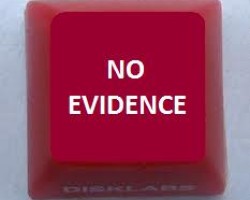
ISABEL MARGARITA GASCUE, Appellant,
v.
HSBC BANK, U.S.A., National Association as Trustee for the holders of DEUTSCHE, ALT-B Securities Mortgage Loan Trust, Series 2006-AB4 Mortgage Pass-Through Certificates, Appellee.
No brief filed for appellee.
POLEN, J.
Isabel Margarita Gascue (“Gascue”) challenges an order denying her motion to vacate final judgment of foreclosure. Because Gascue alleged a colorable entitlement to relief under rule 1.540(b), Florida Rules of Civil Procedure, due to excusable neglect and the existence of meritorious defense, we reverse and remand for an evidentiary hearing on the motion.
In November 2007, HSBC Bank (“Bank”) filed a complaint to foreclose on the mortgage and to enforce lost loan documents against Gascue. Upon being served the complaint, Gascue retained the services of an attorney, who filed his notice of appearance in January 2008. In March 2009, Bank filed its motion for summary final judgment of foreclosure. Bank admits that Gascue’s attorney was noticed of the hearing, but failed to appear. The motion was heard and granted.
Gascue alleged she did not learn of the summary judgment hearing until she found out about the foreclosure judgment itself. She subsequently retained new counsel and filed a motion to vacate final judgment of foreclosure alleging, inter alia, excusable neglect. The trial court denied the motion at a non-evidentiary hearing.
Rule 1.540(b) allows a court to relieve a party from final judgment, decree, order, or proceeding for reasons of “mistake, inadvertence, surprise, or excusable neglect.” A trial court’s denial of rule 1.540(b) relief is reviewed for an abuse of discretion. See SunTrust Bank v. Puleo, 76 So. 3d 1037, 1039 (Fla. 4th DCA 2011). We find abuse of discretion in the instant case and must reverse. The failure of a defendant’s attorney to appear at a summary judgment hearing may constitute the type of “excusable neglect” that warrants relief under rule 1.540(b). See Walker v. Franklin, 669 So. 2d 1088 (Fla. 4th DCA 1996) (holding it was error to deny rule 1.540(b) relief when appellant’s attorney failed to attend a summary judgment hearing).
Relief under rule 1.540(b) also requires the relief-seeking party to demonstrate a meritorious defense. America’s Yate de Costa Rica v. Armco Mfg., Inc., 82 So. 3d 882, 885 (Fla. 4th DCA 2011). Gascue satisfied this requirement, alleging that Bank was not the holder of the note and mortgage, thus had no standing to foreclose. The proper party with standing to foreclose on a note and/or mortgage is the holder of the note and mortgage or the holder’s representative. BAC Funding Consortium, Inc. v. Jean-Jacques, 28 So. 3d 936, 938 (Fla. 2d DCA 2010). Additionally, a party must have standing to file suit “at its inception and may not remedy this defect by subsequently obtaining standing.” Rigby v. Wells Fargo Bank, N.A., 84 So. 3d 1195, 1196 (Fla. 4th DCA 2012).
There is no evidence on the record indicating that Bank was the holder of the mortgage at the time the complaint was filed. Just as in Rigby, Bank attached a mortgage to its complaint in which it was not listed as the lender, but rather “Pinnacle Direct Funding” was. The only evidence that Bank is the owner and holder of the note is a sworn affidavit. However, this affidavit was filed three years after the complaint and does not establish when Bank became the holder of either the note or the mortgage, much less establish that Bank was the holder of said instruments at the time the complaint was filed. See id. (reversing the trial court in part because the supporting affidavit in that case did not establish the date on which the bank acquired possession of the note).
Since Gascue filed the rule 1.540(b) motion within the requisite one-year period after entry of the final summary judgment with facts that seem to indicate excusable neglect, we reverse the order denying relief under rule 1.540(b). On remand, the trial court should conduct a limited evidentiary hearing. See Chancey v. Chancey, 880 So. 2d 1281, 1282 (Fla. 2d DCA 2004) (noting that, where rule 1.540(b) motion alleges a colorable entitlement to relief, court should conduct a limited evidentiary hearing on the motion).
Reversed and Remanded for further proceedings.
WARNER, and DAMOORGIAN, JJ., concur.
Not final until disposition of timely filed motion for rehearing.
© 2010-19 FORECLOSURE FRAUD | by DinSFLA. All rights reserved.


